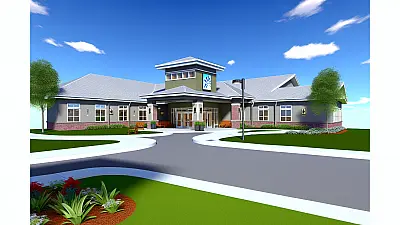EBENSBURG, PA - A recent inspection at Cambria Care Center revealed serious flaws in the facility's quality assurance and performance improvement (QAPI) system, which failed to effectively address ongoing problems with comprehensive care planning for residents.

Ineffective Quality Oversight System
The January 30, 2025 inspection found that Cambria Care Center's QAPI committee was not functioning properly to correct deficient practices related to developing comprehensive person-centered care plans. This represents a significant breakdown in the facility's internal quality control mechanisms, which are designed to identify problems and implement corrective measures.
Quality assurance and performance improvement committees serve as the backbone of nursing home oversight, responsible for continuously monitoring care quality and implementing systematic improvements. When these committees fail to function effectively, it creates a cascade of problems that can directly impact resident care and safety.
Recurring Issues Despite Previous Corrections
Particularly concerning was the discovery that problems persisted despite previous attempts at correction. The facility had developed a plan of correction for deficiencies in professional nursing services that were cited during a February 14, 2024 survey. This plan specifically included commitments to complete regular audits and report audit results to the QAPI committee for review.
However, the current survey revealed that these corrective measures had not been effective, suggesting that either the audits were not being conducted properly, the QAPI committee was not adequately reviewing the results, or the committee was failing to implement necessary changes based on audit findings.
Medical Significance of Care Planning Failures
Comprehensive person-centered care plans are fundamental to quality nursing home care. These plans must address each resident's unique medical conditions, functional abilities, preferences, and goals. When care planning systems fail, residents may not receive appropriate medications, therapeutic interventions, or support services tailored to their specific needs.
Effective care planning requires coordination among multiple disciplines including nursing, dietary, social services, activities, and therapy staff. The failure of the QAPI system to address care planning deficiencies suggests potential gaps in this interdisciplinary coordination that could affect multiple aspects of resident care.
Industry Standards and Best Practices
Federal regulations require nursing homes to maintain robust QAPI programs that systematically identify areas needing improvement and implement evidence-based interventions. These programs must be data-driven, using performance indicators and outcome measures to track progress and guide decision-making.
Effective QAPI systems typically include regular data collection, trend analysis, root cause analysis when problems are identified, and implementation of targeted interventions with follow-up monitoring. The apparent breakdown in this process at Cambria Care Center indicates a need for comprehensive review and restructuring of their quality improvement approach.
Pattern of Systemic Issues
The fact that this represents a continuation of previously identified deficiencies suggests systemic issues rather than isolated incidents. When facilities fail to effectively implement corrective action plans, it often indicates problems with leadership oversight, staff training, resource allocation, or organizational culture.
Professional nursing services deficiencies, which were the subject of the failed correction plan, can encompass issues such as medication administration, wound care, infection control, and clinical assessment practices. The persistence of these problems despite corrective efforts raises questions about the facility's ability to maintain consistent standards of care.
Additional Issues Identified
The inspection narrative references additional citations that were part of the current survey findings, though specific details were not provided in the available documentation. These appear to be related to the ongoing professional nursing services concerns that the facility had previously attempted to address through their QAPI process.
The inspection was classified as having "potential for actual harm" affecting "some" residents, indicating that while the violations were serious enough to create risk of negative health outcomes, they had not yet resulted in widespread actual harm to the resident population.
The findings at Cambria Care Center highlight the critical importance of effective quality improvement systems in nursing home operations. When these systems fail, they can allow problems to persist and potentially escalate, creating risks for vulnerable residents who depend on consistent, high-quality care. Successful resolution will likely require comprehensive review of the facility's QAPI processes, enhanced staff training, and implementation of more robust monitoring and accountability measures.
Full Inspection Report
The details above represent a summary of key findings. View the complete inspection report for Cambria Care Center from 2025-01-30 including all violations, facility responses, and corrective action plans.
💬 Join the Discussion
Comments are moderated. Please keep discussions respectful and relevant to nursing home care quality.